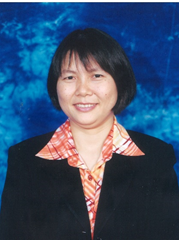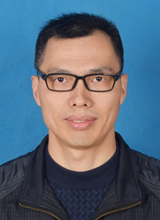报告者信息
 |
报告题目: 语言智能处理研究进展与展望. 报告摘要: 语言智能处理是人工智能研究领域的高难核心研究课题,本报告主要介绍语言智能处理的研究概况及现状、主要研究热点及难点;同时介绍本研究团队承担完成的相关重点研究项目及进展情况、取得的典型应用及成果;最后,阐述了语言智能处理的未来发展趋势及展望。 . 专家简介:黄河燕,北京理工大学计算机学院院长、教授,北京市海量语言信息处理与云计算应用工程技术研究中心主任,教育部计算机专业教指委委员,中国人工智能学会、中国中文信息学会和中国软件行业协会副理事长;长期从事语言智能处理与机器翻译的理论及应用研究,主持多项国家自然科学基金重点项目、国家重点研发计划项目、973计划课题等重要科研项目,曾获国家科技进步一等奖、二等奖等奖项,被授予“全国优秀科技工作者”称号。 |
|||
 |
报告题目: Research challenges on Granular Computing: Data Analytics and Uncertainty. 报告提纲: Discovering patterns from big data attracts a lot of attention due to its importance in discovering accurate patterns and features that are used in predictions of decision making.Pattern recognition is machine learning related challenges in big data analytics and is of high dimensionality and complexity in data representation. Granular computing and feature selection are among the challenge to deal with big data analytics that is used for accurate and secure pattern recognition. We will discuss these challenges in this talk and provide new projection for health care risk prediction. In decision making most approaches are taking into account objective criteria, however the subjective correlation among different ensembles provided as preference utility is necessary to be presented to provide confidence preference additive among it reducing ambiguity and produce better utility preferences measurement for good quality predictions. Most models in Decision support systems are assuming criteria as independent. Different type of data (time series, linguistic values, interval data, etc.) imposes some difficulties to data analytics due to preprocessing and normalization processes which are expensive and difficult when data sets are raw and imbalanced. We will highlight these issues though project applied to health-care for elderly, by merging heterogeneous metrics based granules for providing health care predictions for elderly at home. We have utilized ensemble learning, combined with granules’ as multi-classification techniques on multi-data streams that collected from multi-sensing devices. Subjectivity (i.e., service personalization) would be examined based on correlations between different contextual structures that are reflecting the framework of personal context, for example in nearest neighbor based correlation analysis fashion. Some of the attributes incompleteness also may lead to affect the approximation accuracy. Attributes with preference-ordered domain relations properties become one aspect in ordering properties in rough approximations. We outline issues on Virtual Doctor Systems, and highlights its innovation in interactions with elderly patients, also discuss these challenges in granular computing and decision support systems research domains. In this talk I will present the current state of art of granular computing and focus it on health care risk analysis with examples from our experiments. 专家简介: Hamido Fujita,he is professor at Iwate Prefectural University (IPU), Iwate, Japan, as a director of Intelligent Software Systems. He is the Editor-in-Chief of Knowledge-Based Systems, Elsevier of impact factor (4.528) for 2016. He received Doctor Honoris Causa from Óbuda University in 2013 and Doctor Honoris Causa from Politehnica University Timisoara, Romania 2018, and a title of Honorary Professor from Óbuda University, Budapest, Hungary in 2011. He received honorary scholar award from University of Technology Sydney, Australia on 2012. He is Adjunct professor to Stockholm University, Sweden, University of Technology Sydney, National Taiwan Ocean University and others. He has supervised PhD students jointly with University of Laval, Quebec, Canada; University of Technology, Sydney, Australia; Oregon State University (Corvallis), University of Paris 1 Pantheon-Sorbonne, France and University of Genoa, Italy. He has four international Patents in Software System and Several research projects with Japanese industry and partners. He is vice president of International Society of Applied Intelligence, Editor-in-Chief of the Knowledge-based System (Elsevier) and also co-Editor-in-chief of Applied Intelligence Journal (Springer). He has given many keynotes in many prestigious international conferences on intelligent system and subjective intelligence. He headed a number of projects including Intelligent HCI, a project related to Mental Cloning as an intelligent user interface between human user and computers and SCOPE project on Virtual Doctor Systems for medical applications. |
|||
 |
报告题目: A fresh look at some Machine Learning techniques from the perspective of Dempster-Shafer theory. 报告摘要:The Dempster-Shafer theory of belief functions is a formal framework for modeling and reasoning with uncertainty. It is based on the representation of independent pieces of evidence by belief functions, and on their combination by an operator called Dempster’s rule. In this talk, we show that the weighted sum and softmax operations performed in logistic regression classifiers and, for instance, in the output layer of feedforward neural networks can be interpreted in terms of evidence aggregation using Dempster's rule of combination. From that perspective, the output probabilities computed by such classifiers (including also support vector machines) can be seen as being derived from some belief functions, which can be laid bare and used for decision making or classifier fusion. This finding suggests that the links between machine learning and belief functions are closer than is usually assumed, and that Dempster-Shafer theory provides a suitable framework for developing new machine learning algorithms. 专家简介: Thierry Denoeux is a Full Professor (Exceptional Class) with the Department of Information Processing Engineering at the Université de Technologie de Compiègne (UTC), France. He has been deputy director of the Heudiasyc research Lab (UMR 7253) from 2008 to March 2014 and a Vice President of the Scientific Council of UTC in 2012-2014. He is the scientific coordinator of the Laboratory of Excellence “Technological Systems of Systems”. Since 2016, he is an ‘Overseas Talent’ visiting professor at Beijing University of Technology. His research interests concern reasoning and decision-making under uncertainty and, more generally, the management of uncertainty in intelligent systems. His main contributions are in the theory of belief functions with applications to statistical inference, pattern recognition, machine learning and information fusion. He is the author of more than 200 papers in journals and conference proceedings and he has supervised 30 PhD theses. He is the Editor-in-Chief of the International Journal of Approximate Reasoning (Elsevier), and an Associate Editor of several journals including 'Fuzzy Sets and Systems’ and 'International Journal on Uncertainty, Fuzziness and Knowledge-Based Systems’. |
|||
 |
报告题目: 复杂数据的聚类模型与算法 报告摘要:聚类分析是数据挖掘与机器学习的一个重要研究内容,被广泛应用于医疗诊断、图像处理、信息检索和生物信息学等领域。目前,不同类型的聚类模型和算法已被广泛地提出和发展。然而,随着信息技术和采集技术不断地发展,数据的结构不断地复杂化。 由于聚类分析是数据驱动的,数据的复杂性给现有的聚类算法提出了严峻的挑战。因此,课题组以复杂数据为研究对象,针对数据的动态性、表示的多样性和结构的复杂性等特点,进行聚类建模和算法设计,具体工作包括:(1)混合数据的聚类算法;(2)动态数据的聚类算法; (3)非平衡数据的聚类算法;(4)非线性可分数据的聚类算法。 专家简介:梁吉业,博士、教授、博士生导师,山西大学计算智能与中文信息处理教育部重点实验室主任,太原师范学院校长,山西省大数据挖掘与智能技术协同创新中心主任,教育部计算机类专业教学指导委员会委员,中国计算机学会理事,山西省计算机学会理事长, 享受国务院政府特殊津贴专家。先后主持国家863计划项目2项、国家自然科学基金项目6项(其中重点项目2项);在《Artificial Intelligence》、《IEEE Transactions on Pattern Analysis and Machine Intelligence》、《IEEE Transactions on Knowledge and Data Engineering》、 《Data Mining and Knowledge Discovery》、《中国科学》等国际国内重要学术刊物和会议上发表论文200余篇,其中SCI收录100余篇;获山西省自然科学一等奖2项。2014—2017入选Elsevier中国高被引学者榜单。 |
|||
 |
报告题目: 多尺度信息系统的知识表示与知识获取 报告摘要:针对传统粗糙集数据分析中的信息系统和决策表只能表示单一粒度标记的数据问题,提出多尺度信息系统的粗糙集数据分析模型。首先介绍多粒度粗糙集数据分析研究的背景,其次回顾目前多粒度粗糙集数据分析的几种方法,最后介绍多尺度信息系统 (也称多粒度标记信息系统)和多尺度决策系统的粒计算与知识获取问题的研究进展与展望。 专家简介:吴伟志,博士、教授、博士生导师,浙江海洋大学数理与信息学院院长、浙江省一流学科B类(数学)负责人、浙江省海洋大数据挖掘与应用重点实验室负责人,任中国人工智能学会粒计算与知识发现专业委员会名誉主任委员、中国系统工程学会模糊系统与模糊数学理事会常务理事、 中国人工智能学会理事。担任《International Journal of Computer Science and Knowledge Engineering》主编、《International Journal of Machine Learning and Cybernetics》副主编、并任多个国际学术杂志和2个中文核心杂志的编委。主持国家自然科学基金面上项目5项、参与国家自然科学基金项目3项(其中重点项目1项), 主持浙江省自然科学基金重点项目1项、面上项目2项。在《IEEE Transactions on Knowledge and Data Engineering》、《IEEE Transactions on Fuzzy Systems》、《中国科学》等国内外学术期刊和国际学术会议上发表论文100多篇,其中SCI收录60余篇,发表的SCI论文被SCI他引近2900次,SCI论文h-因子26,5篇论文名列国际计算机领域学科ESI论文。 论著被Google Scholar引用9700多次,Google Scholar的h-因子40。连续四年(2014-2017)列入由爱思唯尔发布的“中国高被引学者(Most Cited Chinese Researchers)榜单”。获省部级及以上科研成果奖共5项,其中国家科学技术进步奖二等奖1项。合作论文“不协调目标信息系统的知识约简”荣获2007年度首届“中国百篇最具影响的优秀国内学术论文奖”。 |
|||
 |
报告题目: 数据驱动智能——基于粒计算的视角 报告摘要:本报告首先概述数据驱动智能的几大主要挑战,包括合理数据采集、数据量大、数据动态性、数据不确定性和多源异构性等问题,并阐述数据驱动智能的四个要素,包括数据、算法、计算力和行业应用,接着重点介绍我们近期基于粒计算理论在数据驱动智 能方面的工作进展,包括大规模增量特征选择算法设计,不确定性知识并行发现方法、多源异构数据融合技术,最后给出在高铁大数据和智慧城市等方面的应用案例。 专家简介:李天瑞,西南交通大学信息科学与技术学院教授,博士生导师,四川省云计算与智能技术高校重点实验室主任,主要研究方向是数据挖掘与知识发现,云计算与大数据,粒计算与粗糙集。在AI,IEEE TKDE,IEEE TEC,IEEE TFS,IEEE TC等国际期刊和中国科学、 软件学报、计算机学报等国内期刊或KDD、IJCAI、UbiComp国际会议等上发表学术论文300余篇 (被SCI检索110余篇,EI检索230余篇, 入选ESI热点论文3篇和高被引论文12篇,18篇论文入选2016年教育部学科评估统计ESI前3%论文),学术影响力已进入全球计算机科学领域的前1%,排名第497位 (共3094名科学家入选)(据ESI 2018年6月份统计),Google H-index是32,获得授权发明专利和软件著作权20余项;在科学出版社等出版编著6部,主编国际SCI期刊专辑9集。承担科技项目20余项[其中国家级项目7项]。并应邀到国际会议做大会特邀报告18次。担任国际会议主席、程序或组织委员会主席20余次。 担任国际杂志International Journal of Computational Intelligence Systems(IF: 2.0)领域主编以及Knowledge-based Systems(IF: 4.396), Information Fusion(IF: 6.639)编委。是国际粗糙集学会会士,CCF杰出会员,ACM、IEEE和CAAI高级会员,IEEE CIS成都分会13-17主席,ACM SIGKDD China Chapter司库, CCF成都分部执委,CCF YOCSEF成都分论坛13-14主席。已培养博士后8名,博士13名,硕士40余名。培养的学生曾获得CAAI优秀博士论文提名奖1次,ACM成都分会优秀博士论文奖4次,IEEE成都分会优秀学生论文奖4次,国际/全国会议优秀论文奖10余次,2015年天池大数据“新浪微博互动预测大赛”冠军(奖金20万元), 2016年国际人工智能联合会议竞赛(社会影响力分析)亚军等。毕业学生就业单位包括国际知名研究机构如微软亚洲研究院,一流高校如四川大学和国际知名企业如百度、阿里巴巴、腾讯、华为等。 |